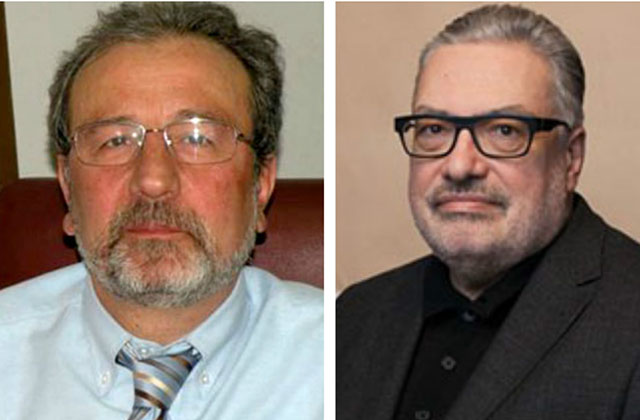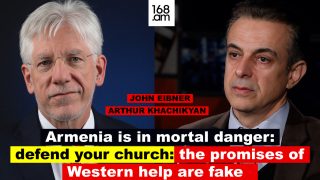“The Armenian side attempts to send a message to its Eurasian partners”

For the first time this year Armenia will take part in NATO military exercises. The statement issued by Georgian Defense Ministry informs about this.
According to Georgian Defense Ministry 11 NATO member and treaty partner countries will take part—the USA, Great Britain, Germany, Spain, Romania, Turkey, Slovenia, Georgia, Azerbaijan, Ukraine and Armenia. Noble Partner-2017 exercises will be launched in late July, not far from Vaziani training area outside Tbilisi, under the motto “Strength in partnership”.
Based on information provided by Georgian Defense Ministry, purpose of exercises is strengthening cooperation of NATO member and partner countries, deepen regional and multinational partnership, as well as strengthen Georgia’s defensibility.
Nobel Partner exercises are held in Georgia for the third time. First time they were held in 2015, participants of which were servicemen of the USA and Georgia, in 2016 Great Britain also joined them.
It’s noteworthy that Moscow has criticized last year’s military exercises. On the threshold of 2016 military exercises Russian Foreign Ministry qualified them as a provocation aimed at destabilization of the situation in the South Caucasus. This time Armenia’s participation in NATO exercises didn’t miss attention of Moscow’s expert community. In particular, Igor Korotchenko, Russian military expert, was the first to qualify decision of Armenian authorities to participate in them as “military and political mistake”.
He attempted to even remind Armenia that any country won’t support Armenia, but Russia. And according to Korotchenko “flirt” with NATO won’t lead to anything good. He also expressed hope that this step by Yerevan won’t have an effect on Armenia-Russia relations. “Armenia is a CSTO member as well, this very military organization provides security guarantees to Armenia if it becomes a target of aggression,” he said.
Pavel Felgenhauer, military analyst, reflecting to NATO-Georgia cooperation volumes, told “168 Hours” that in military field cooperation considerably grew after annexation of Crimea to Russia, after which particularly American approaches on Georgia’s security have changed: the West considers, that Georgia, like Ukraine is under direct Russian threat, thus, Georgia needs serious support. “Exactly NATO is doing this today—it attempts to possibly provide Georgia’s security, making the latter NATO’s regional center and involving partner countries in it.
All this, naturally is organized in Vaziani, as we, experts have anticipated. Russia’s efforts on strengthening its military presence in possible zones follows this, I mean Southern district, including military bases deployed in Armenia, Armenia-Russia joint troops, which, alongside with several issues, are directed to simpler, if speaking of strengthening NATO’s mechanisms of restraint, as Armenia borders NATO member Turkey and Georgia, which strives to membership,” Felgenhauer said.
As for Armenia’s participation in NATO exercises and Moscow’s possible reflection, the Russian expert said, naturally it’s Armenia’s right to decide whether to participate in military exercises or not.
“I don’t consider that it isn’t a decision discussed with Moscow, as Armenia’s newly appointed Defense Minister right after his appointment was both in Moscow and Tbilisi with rather saturated visits, in Brussels Armenia’s president Serzh Saegsyan recently met NATO leadership, after which he was in Russia. I consider during those visits these issues have been covered, as these visits aren’t only about bilateral relations, although relations with third countries refer bilateral relations as well. I don’t consider that Yerevan is unaware of what Moscow’s reflection will be. However, I think this time Moscow will also reflect to these exercises,” Felgenhauer said.
In his words even if the decision wasn’t discussed with Moscow, its reflection won’t be dramatic, as in Armenia-Russia military and political relations current level of trust is rather high, Moscow sees that by deepening its relations with Russia, Armenia attempts to maintain certain relations with the West as well—EU, NATO, which is agreed with Moscow, if not “aloud”, then “silently”. Thus, he believes Armenia has Russia’s consent.
However, according to him it isn’t excluded either that here Yerevan’s policy is existent as well, which hasn’t been absolutely discussed with Moscow, basically, it isn’t addressed to Moscow but CSTO and Russia’s issues inside it. “Armenia has issues in CSTO, which currently aren’t linked to both policy pursued by CSTO and postponement of appointment of Armenian rep in the position of CSTO Secretary-General.
Maybe by this the Armenian side sends a message to its Eurasian partners, which violate CSTO provisions. Russia may interfere with these issues, however, Russia-Kazakhstan and Russia-Belarus relations currently aren’t in a condition that Russia attempted to urge decisions to these countries regarding Armenia,” Felgenhauer said.
Kakha Gogolashvili, Director of EU Studies at the Georgian Foundation for Strategic and International Studies, Georgian political scientist, reflecting to the military exercises, said year by year Georgia and NATO attempt to enlarge geography of exercises. “Armenia’s participation was a positive surprise for me, as throughout recent year Armenia more deepened its military cooperation with Russia.
Against this background there was an impression that Armenia won’t be able to continue smallest cooperation with the West, like the Association Agreement. If Armenia deepens its military ties with Moscow, parallel to it initialing an agreement with Brussels, participating in NATO exercises, it means it was able to find a common language with Moscow and provide guarantees that Armenia won’t pass the red line, as really there is an impression that Armenia acts rather freely with the West.
Meanwhile we know how Putin’s policy works. I consider Armenia has provided guarantees that there will be no unexpected steps for Moscow. In its turn, the latter faces a complicated situation with the West—new American sanctions, new issues, Syrian, Ukrainian conflicts, where Russian positions are weakened and Russia also needs to show mutual agreement with the West,” Georgian political scientist concluded.
By Araks Martirosyan

























